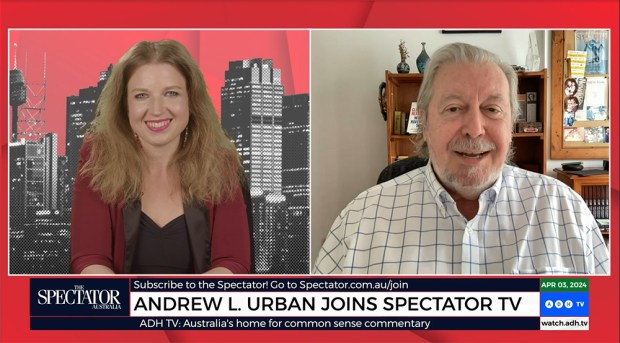 I had finished work the previous day in preparation for a fortnight of paternity leave. My wife was on the list for an elective caesarian section the next morning. So we got in the car first thing and, with some trepidation, entered the surgery department at Geelong Hospital. Caesarians are safe and common procedures, but it was a first-time experience for us, as our first two children were natural births.
I had finished work the previous day in preparation for a fortnight of paternity leave. My wife was on the list for an elective caesarian section the next morning. So we got in the car first thing and, with some trepidation, entered the surgery department at Geelong Hospital. Caesarians are safe and common procedures, but it was a first-time experience for us, as our first two children were natural births.
I won’t bore or disturb readers with the details. Suffice to say, there were upwards of 15 people in the operating theatre for this one. Twins were on the way. The anaesthetist was, to my surprise, the one we had the most to do with during the surgery. He coached us through the operation, helped us relax, and managed my wife’s pain admirably. Soon enough, two babies emerged from the womb – one boy and one girl. My boy got off to a strong start and urinated all over everyone.
It is sobering to consider the nature of the procedure. In this instance, the multitude of medical staff was committed to birthing and preserving the lives of the two babies. Midwives and paediatricians were ready on standby to keep everything in check and provide care if anything went wrong.
In a different circumstance, one where the parent doesn’t want the child, the doctors may either vacuum out the baby’s brains or cut the spinal cord with a pair of scissors. In both cases the baby is birthed, but the outcome depends not on the nature of the baby or ‘foetus’, but on the desire of the parent.
In our case, if the medical practitioner had deliberately killed the babies they would have gone to jail for murder. In another case, with an unwanted baby, they would be in dereliction of their duty if they didn’t end the child’s life. There’s something very Nietzschean about the abortion scenario; the “will to power” is the one that wins the day. Baby dies if mum wants it to. And both procedures are somehow classed as medical care. But joyfully, in our case, both babies were preserved. And they were remarkably healthy for twins. No special care nursery was needed.
Our previous birth experiences were in private hospitals, so we weren’t sure what difference, if any, there would be in a public hospital. We were aware of friends who had experienced very quick turnarounds, with the birth and discharge from the public hospital occurring on the same day. In the private system, the post-natal ward operates more like a hotel for mums and bubs, complete with cake trolleys and al la carte menu. But Geelong Hospital’s post-natal ward, Baxter House, did not disappoint. While there was no cake trolley, the midwives and doctors were wonderful.
My wife and babies received excellent care from the midwifery staff around the clock, including helpful emotional support in what can be a tumultuous time. The paediatricians tended toward being over-careful, and they kept us in for an extra night, making it four. But that is not a criticism; their first responsibility is to the babies. So our foray into the public hospital system was quite positive. Our taxes might be high, and government spending might be mountainous, but it is an amazing thing that top-notch surgical and post-natal care was available to us with no out-of-pocket expenses.
One of the less felicitous tasks that I had after the birth of the twins was alerting the bureaucracy. The birth registrations were fairly straightforward, although my selection of ‘Male’ for my son’s sex and ‘Female’ for my daughter’s might prove controversial in the future. Apparently, according to the radical social engineers running Victoria, my children ought to decide what their birth certificate says about their gender. There was no ‘Undecided’ box to tick, so I used my male privilege and chose nature over nonsense.
The next order of business involved Centrelink. If any organisation does my head in, it’s this one. Having said that, the MyGov system really does make life a lot easier, so full credit to the chief bureaucrats for getting that off the ground. I found my way through the system and proceeded to enter my newly minted offspring onto the Leviathan’s records.
All of this only serves to remind me that our social welfare system is incredibly bloated.
I am a well-off person, from a well-off family, and yet apparently I am “entitled” to government payments and tax benefits because I have children. I have certain sympathies with the Howard/Costello attempt to encourage procreation and population growth. But welfare- as social engineering is fraught with danger. A middle ground on this policy might be tax- breaks for large families of, say, three or more children. This is an attractive alternative to payments and “tax benefits”, as it would require less bureaucratic administration and leaves money in the pockets of those who earn it.
A final reflection on this special time of leave is that practical, emotional and spiritual support is priceless. Our family was magnificent in keeping us sane during the first two weeks with four children under four, with our parents making significant sacrifices to be on hand to help keep the food cooked, clothes clean, and toddlers happy. We were showered with cards, well wishes and gifts from friends and family alike. We attend a fantastic Presbyterian church in Geelong and have done so for only a few months. The support from these people who hardly know us, and yet love us anyway, is quite overwhelming.
So, it is this love and care from friends and family, both natural and spiritual, that has the most impact. The government can offer bureaucratic payments, wealth redistribution, and high-quality healthcare. But it can’t offer flesh-and-blood love, support, and fellowship. It reminds me that we don’t just live in a state; we also live in a community.
Simon P. Kennedy is a writer, researcher, and PhD candidate in the history of political thought.
Got something to add? Join the discussion and comment below.
Get 10 issues for just $10
Subscribe to The Spectator Australia today for the next 10 magazine issues, plus full online access, for just $10.

























Comments
Don't miss out
Join the conversation with other Spectator Australia readers. Subscribe to leave a comment.
SUBSCRIBEAlready a subscriber? Log in